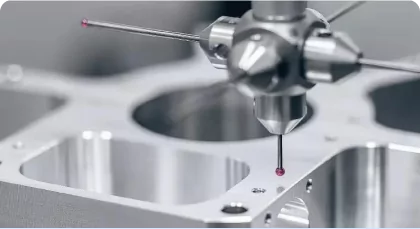Finding an Affordable Five-Axis CNC Machining Factory in Guangdong: A Smart Choice for Global Business
Guangdong province, the manufacturing heartland of China, is renowned for its extensive industrial ecosystem, supply chain integration, and competitive pricing. For engineers and procurement managers worldwide, finding an affordable five-axis CNC machining factory in this region is a strategic move that combines high-end precision with cost-effectiveness. This blend of advanced technology and manufacturing efficiency makes Guangdong an ideal sourcing destination for complex parts.
Why Guangdong for Five-Axis CNC Machining?
The concentration of industry in Guangdong creates a uniquely advantageous environment for precision manufacturing:
Unmatched Supply Chain: From raw material suppliers to specialized finishing services, everything is located within a compact geographic area. This reduces logistics costs and lead times, contributing significantly to more affordable CNC machining services.
High Competition & Value: The density of manufacturers means that pricing is competitive. Factories must provide exceptional value—high quality, reliability, and service—to stand out, which benefits the customer.
Skilled Labor Pool: The region has a deep talent pool of experienced CNC programmers, machine operators, and quality control engineers who can efficiently operate sophisticated five-axis CNC centers, maximizing output and minimizing errors.
What Makes Five-Axis Machining "Affordable"?
The term "affordable" should never mean a compromise on quality. In Guangdong's competitive landscape, it means receiving maximum value. Here’s how a proficient factory achieves this:
Reduced Setup Time: A five-axis machine can complete a complex part in a single setup. This eliminates the time and cost of multiple fixtures and manual repositioning required by 3-axis machines.
Faster Production: By machining parts more quickly and with fewer operations, overall production time is slashed, leading to lower labor and machine costs.
Improved Accuracy, Less Waste: The single-setup process drastically reduces human error and misalignment issues. This means fewer scrapped parts and less material waste, translating directly into cost savings.
Design Simplification: Often, a part designed for 5-axis machining can be manufactured as a single component, replacing what would have been an assembly of several simpler parts. This reduces assembly time and cost.
Alpha-Mold: Your Partner for Affordable Precision in Guangdong
At Alpha-Mold, based in Guangdong's industrial hub, we specialize in delivering top-tier five-axis CNC machining at truly competitive rates. We understand that affordability is key to your project's success.
Our strategy for providing cost-effective precision includes:
Strategic Sourcing: We leverage our local presence to source high-quality materials at better prices.
Operational Efficiency: Our skilled team and modern five-axis CNC machining equipment are optimized for rapid production and minimal waste, passing the savings on to you.
Design for Manufacturability (DFM): We provide free DFM analysis to help optimize your design for the most efficient and affordable manufacturing process, potentially saving significant costs before machining even begins.
Transparent Pricing: We offer clear, competitive quotes with no hidden fees, ensuring you get the best value for your investment.
Frequently Asked Questions (FAQ)
Q: Is there a trade-off between affordable pricing and quality?
A: Not with a reputable manufacturer. At Alpha-Mold, "affordable" is achieved through operational efficiency and supply chain advantages, not by cutting corners. All parts undergo strict quality inspections to ensure they meet specified tolerances and standards.
Q: What materials can you machine with your 5-axis systems?
A: We work with a wide range of materials, including various grades of aluminum, steel, stainless steel, brass, copper, and engineering plastics like PEEK and Delrin.
Q: How do I get a quote for my project?
A: Simply send your 3D CAD drawings (STEP or IGS format preferred) to info@alpha-mold.com. Our engineering team will quickly analyze your project and provide a detailed, competitive quotation.
Q: Do you offer additional services like surface finishing?
A: Yes. We provide a comprehensive suite of finishing services, including anodizing, powder coating, sandblasting, and polishing, all under one roof. This consolidates your supply chain and further reduces cost and lead time.
Q: What is your typical turnaround time?
A: We pride ourselves on a fast turnaround. Timing depends on part complexity and order volume, but we are experts in rapid prototyping and efficient production runs to meet tight deadlines.
Partner with Alpha-Mold for Value and Precision
Choosing an affordable five-axis CNC machining factory in Guangdong like Alpha-Mold means you don't have to choose between cost and quality. We deliver the precise, complex parts you need at a price that makes business sense.
Contact us today to receive a competitive quote and see how our capabilities can benefit your next project.
Email: info@alpha-mold.com
Phone: +8615817600962








